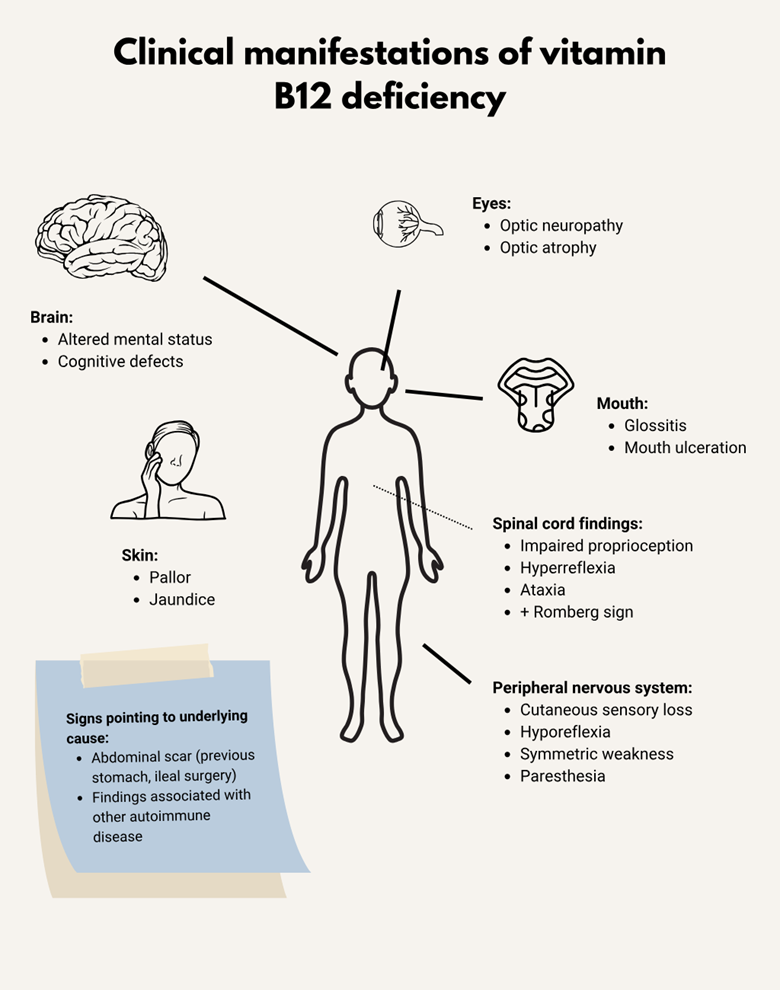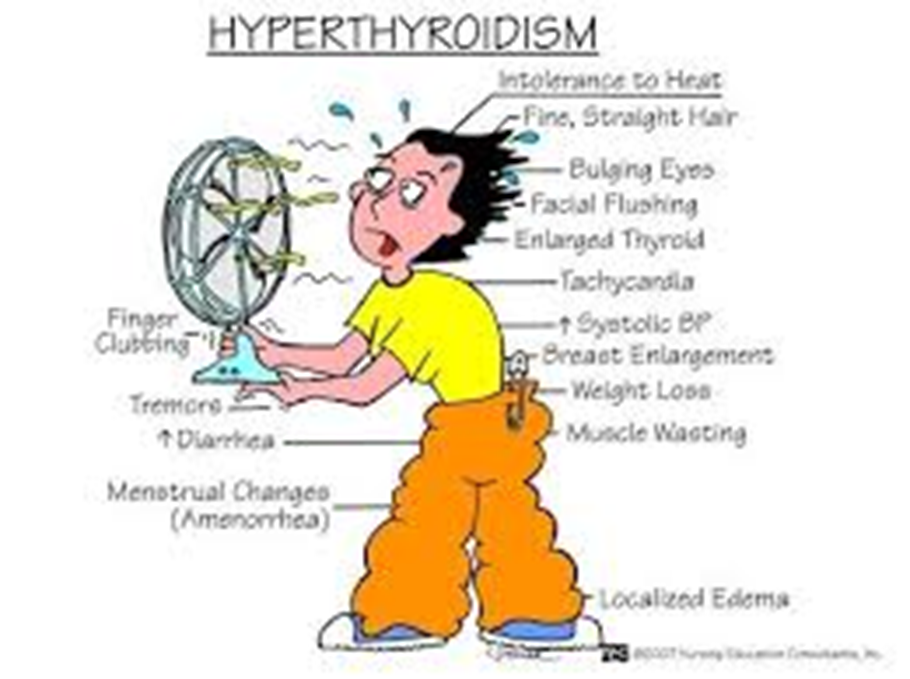A client comes into the emergency room with complaints of an enlarged tongue. The tongue appears smooth and beefy red in color. The nurse also observes a 5-cm incision on the upper left quadrant of the abdomen. When questioned, the patient states, "I had a partial gastrostomy 2 years ago." Based on this information, the nurse attributes these symptoms to which of the following problems?
Vitamin A deficiency
Folic acid deficiency
Vitamin B12 deficiency
Vitamin C deficiency
The Correct Answer is C
A. Vitamin A Deficiency:
Symptoms: Enlarged tongue and smooth, beefy red appearance.
Relevance: Vitamin A deficiency is not typically associated with an enlarged tongue. It is more commonly linked to night blindness and skin issues.
B. Folic Acid Deficiency:
Symptoms: Enlarged tongue and smooth, beefy red appearance.
Relevance: Folic acid deficiency can lead to megaloblastic anemia and glossitis (inflammation of the tongue), which may present as an enlarged, smooth, and red tongue.
C. Vitamin B12 Deficiency:
Symptoms: Enlarged tongue and smooth, beefy red appearance.
Relevance: Vitamin B12 deficiency can cause pernicious anemia and glossitis, resulting in an enlarged, smooth, and red tongue.
D. Vitamin C Deficiency:
Symptoms: Not typically associated with an enlarged tongue.
Relevance: Vitamin C deficiency is more commonly associated with symptoms like scurvy, which includes bleeding gums, joint pain, and skin issues, but not specifically an enlarged tongue.

Nursing Test Bank
Naxlex Comprehensive Predictor Exams
Related Questions
Correct Answer is C
Explanation
A. Development of a buffalo hump and moon face:
This is associated with Cushing's syndrome, a disorder characterized by prolonged exposure to high levels of cortisol.
B. Central obesity and purple striations:
Also indicative of Cushing's syndrome, where excess cortisol can lead to the accumulation of fat in the abdominal area (central obesity) and the development of purple stretch marks (striae).
C. Sudden weight loss without dieting:
This is more characteristic of hyperthyroidism, where the thyroid gland is overactive, leading to increased metabolism and unintended weight loss.
D. Positive Trousseau's sign when checking the client's blood pressure:
Trousseau's sign is associated with hypocalcemia and is seen in conditions affecting the parathyroid gland rather than the thyroid. It involves carpal spasm induced by inflating a blood pressure cuff above the systolic pressure for a few minutes.

Correct Answer is B
Explanation
A. Urinalysis shows trace protein:
Explanation: While trace protein in the urine is generally better than higher levels, it doesn't provide a specific measure of blood glucose control. Protein in the urine can be an early sign of kidney damage in diabetes, but it doesn't directly indicate blood glucose control.
B. Hemoglobin A1C of 5.6%:
Explanation: Hemoglobin A1C (HbA1C) is a long-term indicator of blood glucose control. An HbA1C level of 5.6% is within the target range for individuals with diabetes and suggests good control of blood glucose over the past 2-3 months.
C. Fasting blood glucose of 110 mg/dL:
Explanation: Fasting blood glucose gives a snapshot of blood glucose at a specific moment. While 110 mg/dL is a fairly normal fasting level, it doesn't provide information about long-term control. A single fasting glucose measurement may not reflect overall glucose management.
D. Urine ketones are negative:
Explanation: Negative urine ketones indicate that the body is not currently using fat for energy. While this is a good sign in the moment, it doesn't give information about overall blood glucose control over time. Urine ketones can fluctuate based on various factors, including diet and activity level.
Whether you are a student looking to ace your exams or a practicing nurse seeking to enhance your expertise , our nursing education contents will empower you with the confidence and competence to make a difference in the lives of patients and become a respected leader in the healthcare field.
Visit Naxlex, invest in your future and unlock endless possibilities with our unparalleled nursing education contents today
Report Wrong Answer on the Current Question
Do you disagree with the answer? If yes, what is your expected answer? Explain.
Kindly be descriptive with the issue you are facing.
